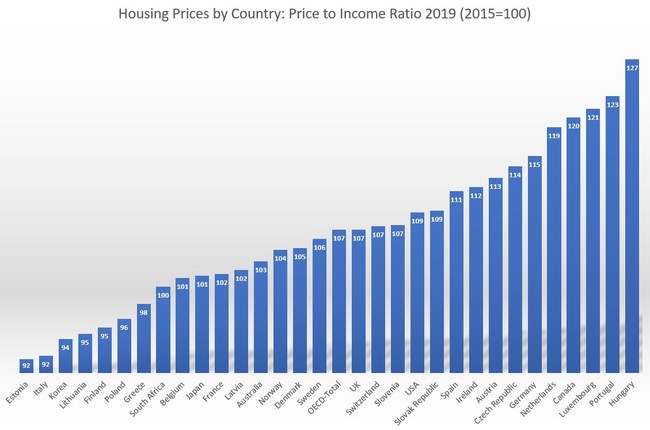SEOUL, South Korea, Sept. 24, 2020 /PRNewswire/ — Unaffordable housing is a growing worldwide problem. In a recent review published in the International Journal of Urban Sciences, researchers dig into the housing affordability problem, defining it and looking beneath the surface for the core causes. They emerge with insights for policymakers and directions for further study that will help alleviate the crisis and lay the foundation for a better housing situation.

Research on the housing affordability problem is abundant. But a compilation of this research shows that it has been challenging to even define the term ‘housing affordability,’ given the nuances of the concept. Much of the body of literature also often focuses on certain specific factors or regions, becoming limited to localized issues or not considering the broader picture. Collectively, this has led to confusion within the research and policymaking communities or resulted in policies that are limited in efficacy.
In a recent article published in the International Journal of Urban Sciences, a journal included in the Social Sciences Citation Index (SSCI), urban studies experts condense decades of international research on housing affordability via a thorough review. Co-author of the review, Dr George Galster, explains, “The literature on housing affordability covers many topics and contexts, which motivated us to review it cross-nationally as well as update and expand the discussion to include different measures of housing affordability, the causes and effects of unaffordable housing, tackle previous policy approaches, and potential future trends.”
The researchers begin by analyzing the various existing definitions and their shortcomings, believing, as they explain, that “the interrelationships among prices, resources, and standards could imply alternative definitions for housing affordability.” Next, they develop a new framing of the determinants of housing affordability by considering not only the factors leading to high housing costs, but also those that determine people’s ability to pay for decent housing. “Housing affordability is a function of the metropolitan housing market and the labor market,” co-author Dr Kwan Ok Lee says.
They also analyze recent research trends in the evaluation of affordable housing policies. They conclude that while there is an appropriate balance of studies evaluating different policies, there are few comparative analyses on the success of these policies within a single country or across different nations. Further, the effects of policies on certain marginalized socio-economic strata of countries and communities and vice versa are often not considered. More holistic frameworks and a healthy combination of qualitative and quantitative analyses will enable the formulation of effective policy decisions that can put a stop to the spreading rot beneath the global housing sector’s floorboards, so to speak.
Unaffordable housing is at the core of several serious societal problems. This review is a step in the right direction. Perhaps, someday, everyone can afford a place called “home.”
Reference
Title of original paper: Housing affordability: a framing, synthesis of research and policy, and future directions
Journal: International Journal of Urban Sciences
DOI: 10.1080/12265934.2020.1713864
About International Journal of Urban Sciences (IJUS)
The International Journal of Urban Sciences (IJUS) is an interdisciplinary journal for urban and regional studies that publishes a wide variety of literature on topics such as planning, transportation, economics, environment, and geography. IJUS is indexed in Cambridge Scientific Abstracts, European Regional Science Association, Online Computer Library Center, Scopus, and the Social Sciences Citation Index (SSCI).
Website: https://www.tandfonline.com/toc/rjus20/current
Contact:
So-Eun Park
+82 2 6490 5301
248112@email4pr.com
SOURCE International Journal of Urban Sciences

